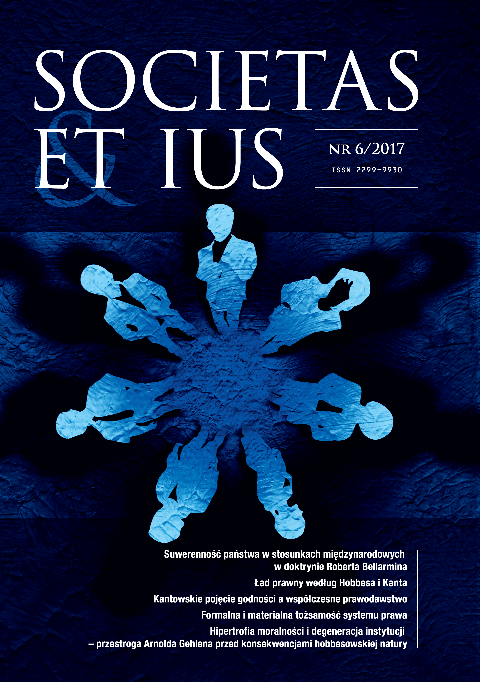Świadomość utopijna i ład społeczny. Uwagi socjologiczno-literackie
DOI:
https://doi.org/10.12775/SEI.2017.009Słowa kluczowe
sociology of literature, utopian conciousness, utopia, social order, revolutionAbstrakt
This essay discusses Utopian thinking and analyses its social and political determinants, transformational potential and functions fulfilled by Utopian projects of social order in the intellectual and cultural life of various groups and social wholes. The most important elements of Utopian discourses are the starting point for the analyses and are their theoretical scope. These elements take the form of categories and concepts from sociology, philosophy and social theory and are confronted with research materials in the form of selected utopias and dystopias in literature and examples from world history, which are usually used as exemplifications of the analysed ideas and tendencies. The assumption which lies behind the realistically oriented approach in sociological literature underlies this double analysis. According to this assumption, «literary utterances» can be treated not only as phenomena that are constructed socially, linguistically and aesthetically but also aselements of the dialectical process of social communication, which are full of a notional content, and a voice in the debate on issues important for theory. The aim of this paper is to describe the intertextual creative community that develops between the categories used by social theory when analysing utopias and social order and the topic explored by authors of utopian prose who test how some selected ideas operate in the worlds from novels. The «double viewpoint» (theory-literature) has been suggested for research purposes to identify and organize the most important elements of the interdisciplinary and cross-border area of the utopian universe, which can represent a contribution to a more detailed description of such a universe.
Pobrania
Opublikowane
Jak cytować
Numer
Dział
Statystyki
Liczba wyświetleń i pobrań: 1695
Liczba cytowań: 0



